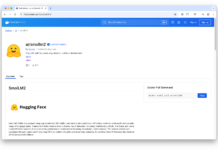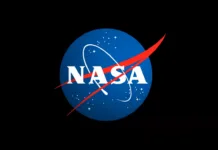In recent years, the emergence of open-source artificial intelligence (AI) models has revolutionized various industries, making advanced technology more accessible to organizations worldwide. One such model, known as Llama, is gaining attention for its potential to transform sectors like healthcare and medical research by providing a cost-effective and flexible alternative to commercial AI models. Unlike proprietary models that often come with hefty licensing fees and usage restrictions, open-source AI models like Llama can be freely used, modified, and improved upon by organizations. This democratization of technology is paving the way for significant innovations across fields that are crucial to our well-being.
Open-source AI models have become instrumental in driving innovation within the medical technology and healthcare research sectors. By allowing developers and researchers to download and fine-tune these models on their own systems, they eliminate the need to send sensitive data back to the AI providers. This not only enhances data security but also grants more control over private health information, a critical concern in the highly regulated healthcare industry. The implications of these advancements are both scientific and economic, with improved health outcomes projected to add a substantial $2.8 trillion to the United States’ Gross Domestic Product (GDP) by 2040.
Various companies are harnessing the power of open-source technology like Llama to develop solutions that promise a healthier future. Let’s explore the stories of two such companies: Zauron Labs and Mendel.
### Zauron Labs
Zauron Labs is making waves in the healthcare industry with its innovative Guardian AI tool. By leveraging Llama’s open-source capabilities, Guardian AI acts as a second set of eyes, meticulously double-checking radiological imaging exams and reports to identify errors. This is crucial because, according to Dr. Kal Clark, a radiologist and co-founder of Zauron Labs, approximately 3 billion medical imaging exams are conducted annually, with an error rate ranging from 3% to 5%. These errors translate to millions of patients at risk of receiving incorrect diagnoses or delayed treatments, potentially leading to prolonged illness and suboptimal long-term health outcomes.
The implementation of open-source AI models like Llama holds the potential to significantly reduce these errors, ultimately saving lives and improving patient care. Dr. Clark, who also serves as the Vice Chair of Informatics at the University of Texas Health San Antonio, explains that Llama enables collaborative development efforts with universities, allowing Zauron Labs to enhance the Guardian AI tool. By functioning as a “spell checker” for radiologists, Guardian AI helps identify discrepancies in imaging reports, ensuring more accurate diagnoses.
Furthermore, the flexibility of Llama’s open-source framework allows Zauron Labs to integrate multiple algorithms that check for a variety of medical issues simultaneously. This layered approach enhances the tool’s utility, making it an invaluable asset for healthcare practitioners in their quest to deliver high-quality care.
### Mendel
Mendel is another company leveraging the power of open-source AI to advance healthcare research and improve patient outcomes. At the heart of Mendel’s innovation is Hypercube, an AI platform designed to extract valuable insights from patient data using a chat-like interface built on open-source models, including Llama. Hypercube offers a range of applications, from trial matching to patient cohorting, addressing critical challenges faced by the healthcare industry.
One of the major hurdles in clinical research is the difficulty in enrolling participants for clinical trials. Currently, approximately 80% of clinical trials fail to meet their enrollment targets, causing delays in the discovery and validation of new treatments. Dr. Wael Salloum, Founder and Chief Science Officer at Mendel, highlights that existing processes can take hundreds of days to match patients with suitable clinical trials. However, with Hypercube, this matching process can be accomplished in just one day, significantly accelerating the pace of medical research.
Open-source AI models, like Llama, provide companies such as Mendel with access to what Dr. Salloum describes as “breakthrough technology.” By utilizing Llama, Hypercube empowers healthcare organizations to organize their data on their own cloud infrastructure, creating a secure and searchable repository of knowledge. This capability not only enhances data security but also ensures that valuable insights can be derived from patient records at scale.
Hypercube’s ability to efficiently process and analyze vast amounts of data allows healthcare providers to make informed decisions, streamline operations, and ultimately improve patient care. By extracting reliable information from patient records, Mendel is contributing to a more efficient and effective healthcare system.
In conclusion, the advent of open-source AI models like Llama is reshaping the landscape of healthcare and medical research. By offering an accessible and flexible alternative to proprietary models, open-source AI empowers organizations to innovate and address complex challenges with unprecedented speed and efficiency. The stories of Zauron Labs and Mendel exemplify the transformative potential of these technologies, showcasing how they are driving advancements in healthcare and paving the way for a healthier future.
For those interested in exploring the capabilities of open-source AI models, it is essential to understand the collaborative nature of these technologies. By enabling developers and researchers to build upon existing models, open-source AI fosters a culture of innovation and knowledge-sharing, ultimately benefiting society as a whole. As we continue to witness the positive impact of open-source AI in healthcare and beyond, it is clear that these models are not just tools for technological advancement but also catalysts for meaningful change in our world.
For more Information, Refer to this article.


































![Samsung’s Breakthrough Fuels Progress in Science and Industry: Interview How Samsung’s Engineering Feat Became a Catalyst for Scientific and Industry Advancement [Interview on Real Quantum Dots Part 2.]](https://www.hawkdive.com/media/samsung-tvs-and-displays-samsung-quantum-dots-technology-qled-tvs-quantum-dots-experts-interview-par-218x150.jpeg)